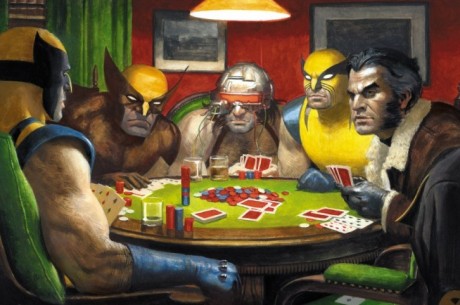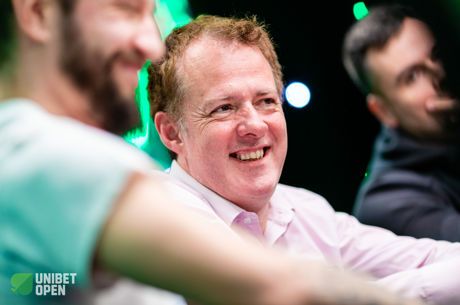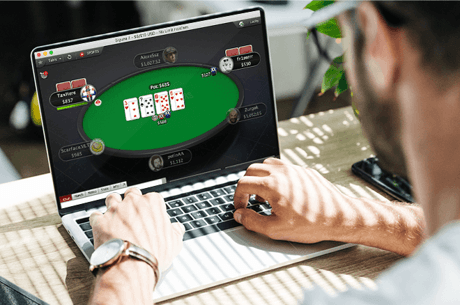Pro Blogs: The Mental Solution �� Shifting Perspective by Alec Torelli
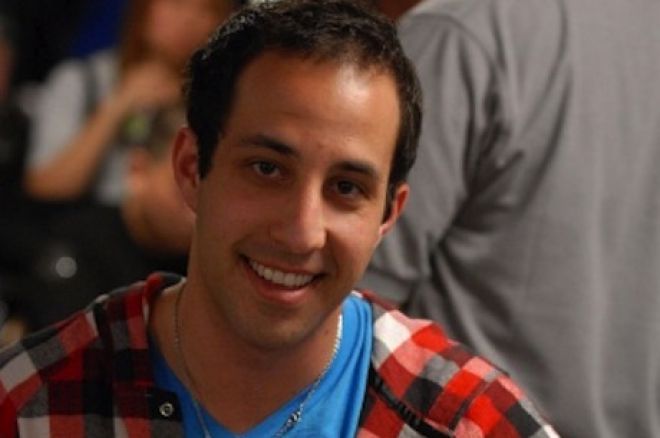
In his latest blog, Alec Torelli discusses shifting perspective and finding happiness.
As discussed in Part 1, physical solutions may help after a disastrous losing session. But what about a long-term downswing? A losing month, terrible World Series, or, in the extreme case of ��Saxophone,�� going broke? For this, a shift in mental perspective is required.

DAMAGE CONTROL
1. Count the Loss
I often put off tallying losses because accepting the reality is too much to bear. But the sooner I do it, the sooner I can come to terms with the fact that it��s real. After I physically write the number down, I allow myself time to lament. Sometimes I go even further and torture myself by calculating how my financial situation would have been different if I hadn��t taken that bad beat.
2. Acceptance
It is the hardest part. I continue my agony by comparing my two numbers side by side (my current financial situation and the ��could have been�� one).
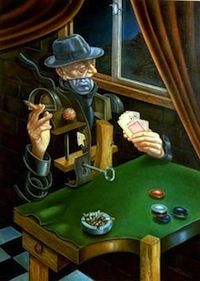
Then, I think long and hard about my life outside of poker. What activities do I enjoy? I actually list them: writing, exercise, cooking, yoga, friends, reading and nature.
I take time to appreciate what they have in common: they are all free. I realize deeply that everything I need to be happy is within my grasp, and my life would be no different with the additional money.
This realization is the moment of epiphany when things start to turn around.
3. Recovery
In this phase, I begin doing my list of activities, even if it means forcing myself to go through the motions. It is common for a simple task to seem overwhelming, like it is for a depressed patient to get out of bed. To make things easier, the night before, I make a schedule. Again, I write it out. I set myself up for success by starting the day with something simple: five minutes of stretching or 20 deep breaths, and gradually move toward more challenging activities. Regardless of time and place, I set an alarm for 7:00 a.m. and get moving.
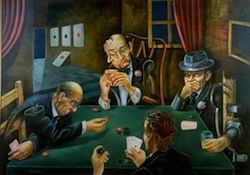
I take time for introspective moments of gratitude. I kick off each day with a simple practice. I set a timer for two minutes, and list as many things I can think I��m thankful for.
The more trivial the better. Raw almonds, my juicer, The New Yorker, Omar Little. It doesn��t matter, just get it out.
As Oscar Wilde said, "We should delight in even the extremest moments of pain, because they are, in fact, extraordinary."
MAINTAINING A POSITIVE OUTLOOK
The Problem
What affected ��Saxophone�� was not that he lost his $500,000 bankroll, but his idea of what that money means. In the thread on TwoPlusTwo, he admitted the money had no specific value to him. His biggest concern seemed that he could no longer compete at the game's highest levels. Understood. Going broke is the poker equivalent of a serious injury for a sports star. Depending on how fast one can recover, he may be out a week, year or a lifetime.
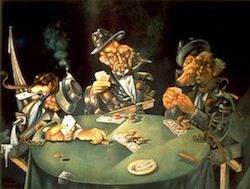
While not being able to immediately play the biggest games is frustrating, it��s no cause for depression. What��s difficult to comprehend is the sheer amount of money lost. Even a year later, he admits being overwhelmed.
Here��s why: money has no purpose. There��s no clear reason one needs the dough, other than they want it. (In actuality,��Saxophone�� doesn��t need the cash). With no void to replace the number that��s burdening him, the pain continues so long as he cannot recover the arbitrary number, because currently, that��s how his success is measured.
Consider this, is it possible to conceive he would be less unhappy if the number he lost was $300,000? What if he began with $10,000,000 and lost $9,500,000? He would still have the $500,000 he laments losing, but I believe he would feel an equivalent sense of loss. The problem then is not in the figure, but his idea of it.
The Solution
Give your chosen non-poker activities meaning by making goals and working towards them.
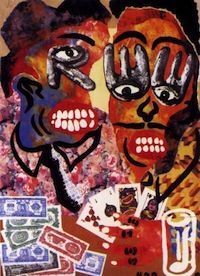
I recommend using Tim Ferriss�� Dreamlines and his Monthly Expense Calendar. Ferriss�� best-selling book: Four Hour Work Week covers, in detail, how to create your ideal lifestyle and the steps to cultivate and calculate it.
I��ve done this successfully for years and never once has my annual Dreamline exceeded $100,000. Please note, I��m high maintenance and my girlfriend calls me ��Little Prince.��
Once we realize that the money we need to do what we want is far less than we think, it��s easier to accept the loss. Contentment comes the moment we appreciate the fact that we��re no happier with $100,000 or $10,000,000.
Lasting Happiness
There are two types of goals: extrinsic and intrinsic. Extrinsic ones involve material, status and fame, while intrinsic goals involve personal growth, relationships and experiences. I cannot stress how much more rewarding intrinsic goals have been in my life. Learning Italian, backpacking through New Zealand, and playing piano crush owning a new wardrobe, more twitter followers, and a bigger bankroll.

Happiness should be our religion and the basis on which we make our decisions. Fortunately, since it is a mental state of being, it is also a skill we can develop. Practicing happiness should be embedded into our daily lives. Gratitude, kindness and modest expectations should be applied to not set ourselves up for disappointment. As little as five minutes a day can make all the difference.
Contentment is not a mysterious place at the end of the rainbow. It exists here and now. Most of all, when choosing an industry where money is the standard way to measure success, we must remember, the goal is not to be rich, but to be happy.
��Be happy for this moments. This moments is your life.�� �C Omar Khayyam
For all my blogs and content, visit www.alectorelli.com. Your feedback is important to me. Feel free to share your thoughts, ask me questions or leave a comment. Follow me on Twitter at @AlecTorelli. For other matters you can email me at [email protected].
Follow PokerNews on Twitter for up-to-the-minute news.

